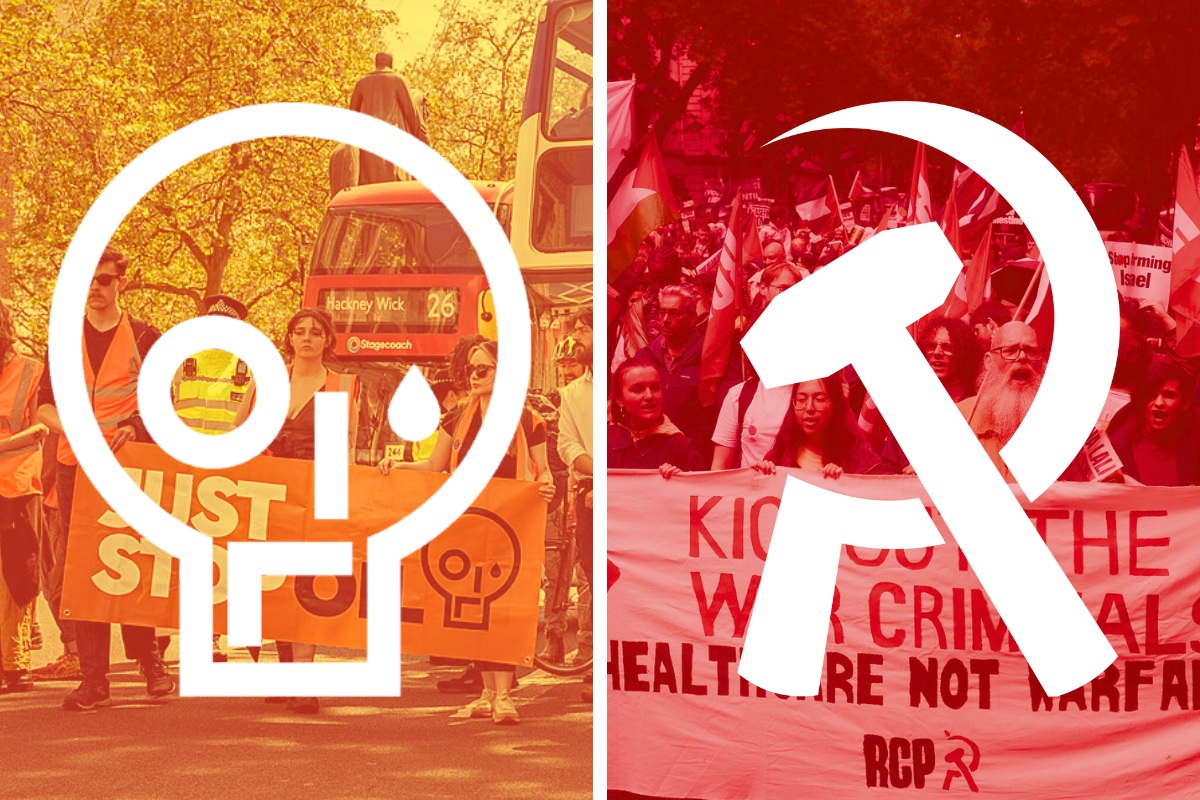Earlier this year, Energy Secretary Ed Miliband ended years of silence from the Government as to how they are going to address the issue of climate change, and how they plan to replace Britain’s aging power plants, many of which are nearing the end of their lifetime, threatening to plunge the country into darkness due to a lack of electricity. The Government’s answer lies in a technology called "Carbon Capture and Storage", or CCS, which they claim will be the silver bullet that simultaneously kills the problems of global warming and national energy supply.
CCS
The principle behind CCS is that carbon dioxide emissions, which are responsible for global warming, can be captured from coal power stations and then pumped underground, where they will sit for thousands of years, instead of escaping into the atmosphere and contributing towards climate change. The idea is that by using CCS, we can continue to generate electricity from power plants running off fossil-fuels, but feel warm and cosy knowing that we are helping to save the planet, as we sweep our problems under the carpet for a future generation to worry about.
Obviously though, there’s a catch – the technology needed for CCS to work is completely unproven. A number of scientific reports have come to the conclusion that CCS is currently completely unviable, and will not be ready to implement for at least another decade, by which time it may already be too late to prevent severe climate change. The Economist’s review of CCS concluded that "even the most optimistic proponents of carbon capture and storage doubt it will be a serious alternative much before." So what are we supposed to do before then? Just sit and twiddle our thumbs?
Not only is the technology unproven, but it is also predicted to be incredibly expensive. A study by the consultancy company McKinsey found that using CCS would be the most costly way of reducing carbon dioxide emissions, and would be far more expensive than installing new wind turbines or solar panels, and even more expensive than building new nuclear power stations. And there is no doubt as to who would pick up the bill for the use of this expensive CCS technology – us, the general public, as we end up with even larger energy bills and higher taxes. The same report found that reducing carbon dioxide emissions could actually save people money if steps were taken by the Government to reduce our energy demand through simple measures, such as fitting every home with insulation.
Big Business calls the tune
 So why are the Government going ahead with CCS when it is unproven and expensive? As usual, the answer is Big Business. The Government is under pressure from rich and powerful lobby groups in the energy industry, which is dominated by a cartel of large, private, multi-national companies that do not want to see their profits fall by moving towards a system of renewable energy. These large energy companies know that the Government will subsidise the installation of CCS technology, leaving them to rake in huge profits as they sell electricity at extortionately high prices, despite the fact that coal is incredibly cheap to obtain.
So why are the Government going ahead with CCS when it is unproven and expensive? As usual, the answer is Big Business. The Government is under pressure from rich and powerful lobby groups in the energy industry, which is dominated by a cartel of large, private, multi-national companies that do not want to see their profits fall by moving towards a system of renewable energy. These large energy companies know that the Government will subsidise the installation of CCS technology, leaving them to rake in huge profits as they sell electricity at extortionately high prices, despite the fact that coal is incredibly cheap to obtain.
How, then, can we stop this cartel of private companies from exploiting us? And what can we do about climate change? For years the Government and the media have been telling us that in order to reduce our impact on the planet we need to take individual steps, such as install energy efficient light bulbs or to recycle more. However, these measures would have a completely negligible effect; the main demand for energy in the home is from heating (due to poor building regulations set by the Government and the fact that most people cannot afford energy efficient heating systems), not for lighting, whilst industry produces far more waste and carbon dioxide emissions than the public do.
Energy rip-offs
The climate change movement has provided few answers either, despite good intentions. The movement is still based on direct action and protest, and on so many occasions we have seen protests about climate change, such as the climate camp in London on the 1st April 2009, merely end in police oppression and disappointment. Meanwhile, popular educational films, such as Al Gore’s ‘An Inconvenient Truth’ do plenty to provide facts and figures, and criticise "consumerism" greedy oil companies, and corrupt politicians, but do little to acknowledge that the cause behind all of these is an economy based on short-term profit: Capitalism.
Governments across the world perpetuate the myth that addressing the issue of climate change would harm the economy (i.e. their profits) and restrict the prospect of growth, and can therefore not be done during this time of recession. The implication being made by politicians and energy companies is that the only way to reduce our carbon dioxide emissions is through so-called market forces, by raising the price on energy and fuel – a raise that would disproportionately affect those on lower wages.
It is obvious, however, that any increase in energy prices would not be done to reduce demand, but rather to increase profits. This can be seen from the increase in heating bills that occurred last winter, resulting in a cold Christmas for many pensioners. Energy companies claimed that they were only increasing heating bills due to the rising price of oil and gas, but when these prices later dropped, the bills mysteriously remained high. According to some economists this situation shouldn’t have occurred, and competition should have resulted in the lowest possible prices for everyone, but the reality is that the energy industry is controlled by an oligopoly of large companies who collude to keep profits high.
Socialist programme needed
 To see real and genuine change, the fight against climate change and the cartel of energy companies must be built upon the movement of the workers’ and the trade unions. Imagine the scene as climate protestors outside a coal power station are met by workers from inside the power plant, who have laid down their tools to go on strike against the appalling state and profiteering of the energy industry. Only the power of the organised working class can mount a serious and effective struggle against the damage being caused by big bussiness internationally. This must be linked to the struggle for socialism, as it is only by nationalising the energy companies under workers’ control that we can hope to create an energy system that works for the public and the planet, and not for profit. New Labour and the rest should stop just taking the line from big business as if it is the only way forward.
To see real and genuine change, the fight against climate change and the cartel of energy companies must be built upon the movement of the workers’ and the trade unions. Imagine the scene as climate protestors outside a coal power station are met by workers from inside the power plant, who have laid down their tools to go on strike against the appalling state and profiteering of the energy industry. Only the power of the organised working class can mount a serious and effective struggle against the damage being caused by big bussiness internationally. This must be linked to the struggle for socialism, as it is only by nationalising the energy companies under workers’ control that we can hope to create an energy system that works for the public and the planet, and not for profit. New Labour and the rest should stop just taking the line from big business as if it is the only way forward.
The crisis facing our planet can only be really addressed by the replacement of a system – capitalism – which acts solely for profit and self-interest, wastes resources, care nothing for the environment and acts for current gain rather than thinking about the future. Under socialism our resources could be efficiently organised to provide for peoples’ needs whilst ensuring that the environment is protected and the damage caused by decades of ruthless exploitation is repaired for those who will come after us.
What we demand:
- No to high prices for electricity and gas – stop the profiteers.
- Nationalise the energy and fuel companies, the transport system, and the major industries!
- A Socialist programme to protect the environment, end the waste caused by capitalism and take real action to combat global warming.





